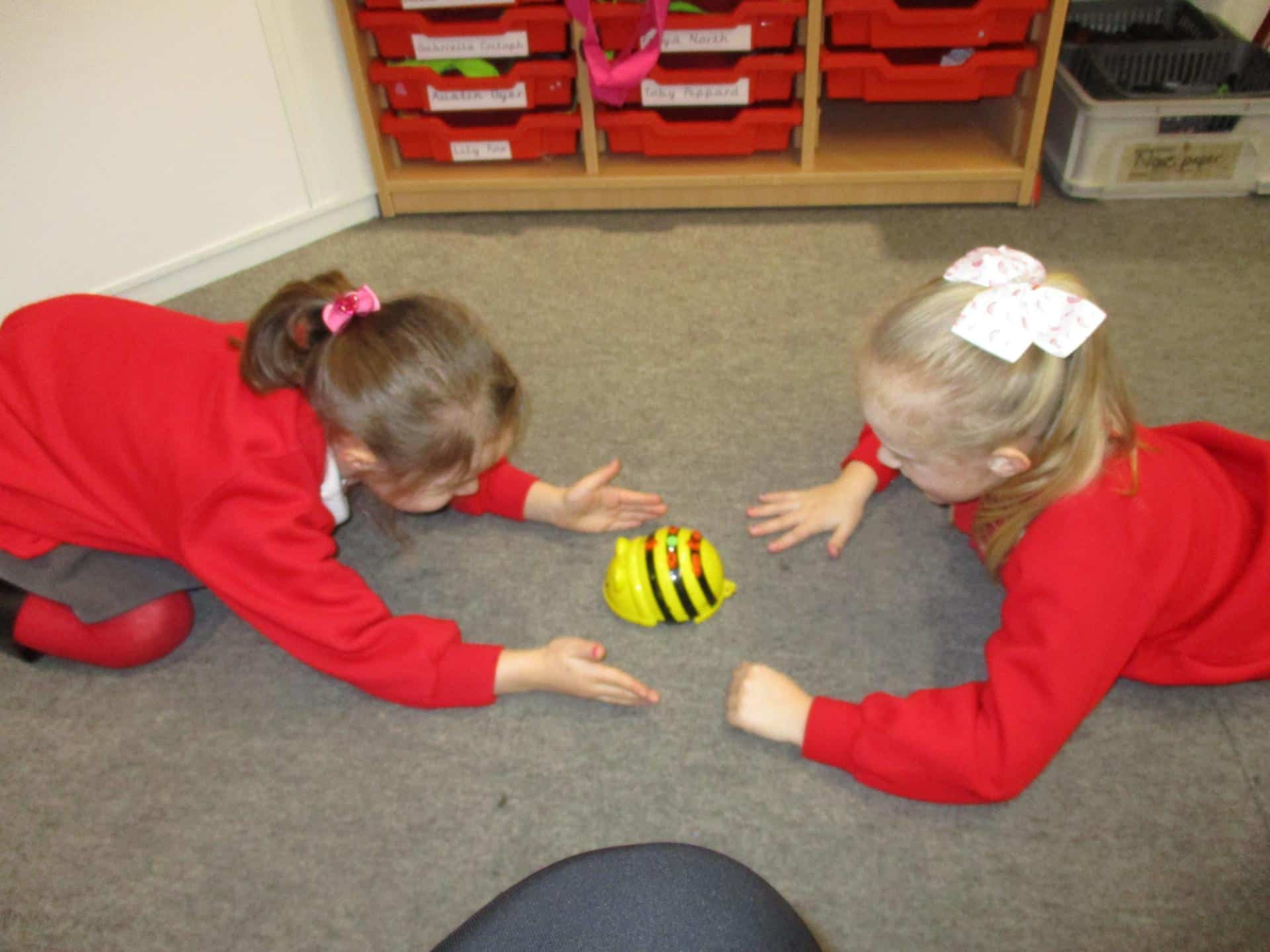Computing
Intent
 Computing is an essential part of our school curriculum. Developing computational thinking helps children make sense of and contribute to the society they will live in as adults. The children have the opportunity to use iPads and laptops in a variety of ways and for different purposes. Lessons are taught discretely or through other areas of the curriculum, though the learning outcomes of computing are always made clear.
Computing is an essential part of our school curriculum. Developing computational thinking helps children make sense of and contribute to the society they will live in as adults. The children have the opportunity to use iPads and laptops in a variety of ways and for different purposes. Lessons are taught discretely or through other areas of the curriculum, though the learning outcomes of computing are always made clear.
Online safety is always a priority and is taught through explicit computing lessons as well as embedding the importance of staying safe online throughout the curriculum when relevant to do so. Please see the Safeguarding Policy for more information.
Miss Loyd, Computing Leader
Implementation
Structure
Computing is a core subject of the National Curriculum, which informs our planning, as do the needs and interests of the pupils we teach. We plan to ensure a clear progression of skills and opportunities for children to interact with and use ICT in meaningful and purposeful ways.
In KS1, the computing curriculum covers three main areas:
- Digital literacy – the ability to use information and communication technologies to find, evaluate, create, and communicate information, requiring both cognitive and technical skills
- Information technology – teaching the children to use systems to store, send and retrieve information
- Computer science – the study of computers, creating simple algorithms (a series of instructions, for example to make a graphic move)
In EYFS the children are taught:
- That information can be retrieved from a computer
- To complete a simple program on a computer
- To use ICT hardware to interact with age-appropriate computer software.
They also learn about how computers and ICT are used in everyday life as well as have opportunities to explore ICT equipment such as the interactive whiteboards, remote control cars and iPads.
Resources for Parents
Please consider the following resources to help stay up-to-date with the fast pace of technology and computing, and how to keep children safe while online or using technology at home.
Links:
UK Safer Internet Website – parent resources:
https://saferinternet.org.uk/guide-and-resource/parents-and-carers
How to set parental controls on a range of devices:
https://www.internetmatters.org/parental-controls/
Talking about harmful content:
https://ineqe.com/2020/09/14/harmful-content/
Ask About Games (PEGI ratings and parental guidance):
https://www.askaboutgames.com/pegi-age-rating
Poppy Playtime and Huggy Wuggy
https://saferschoolsni.co.uk/huggy-wuggy-online-safety-review/
